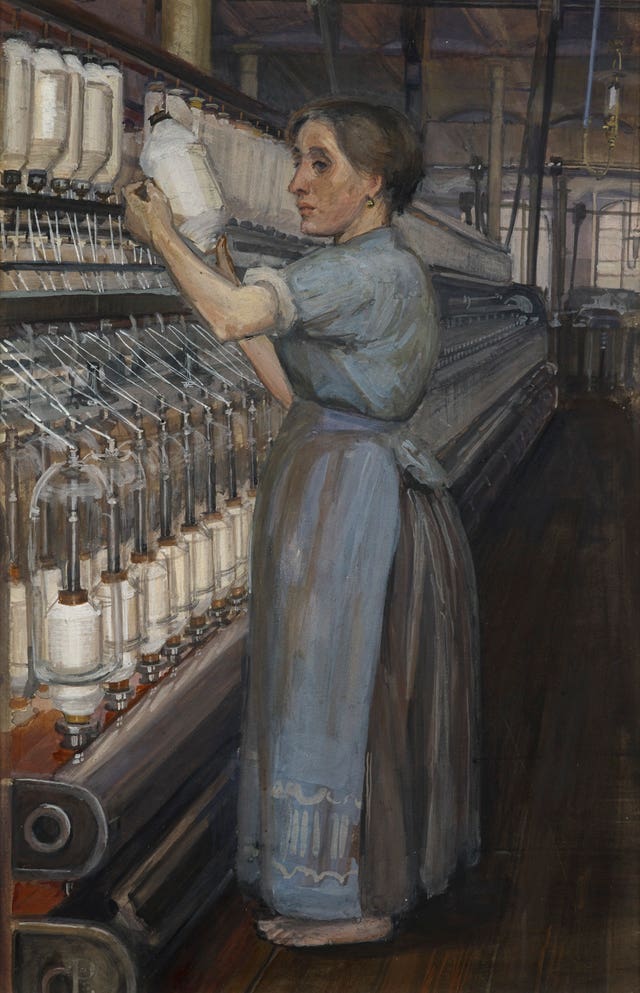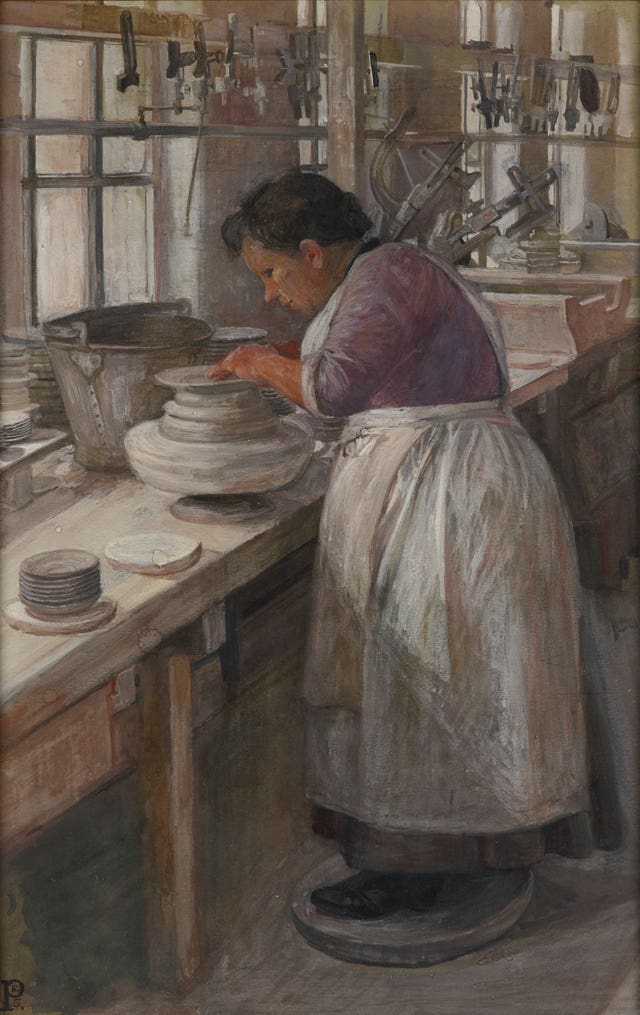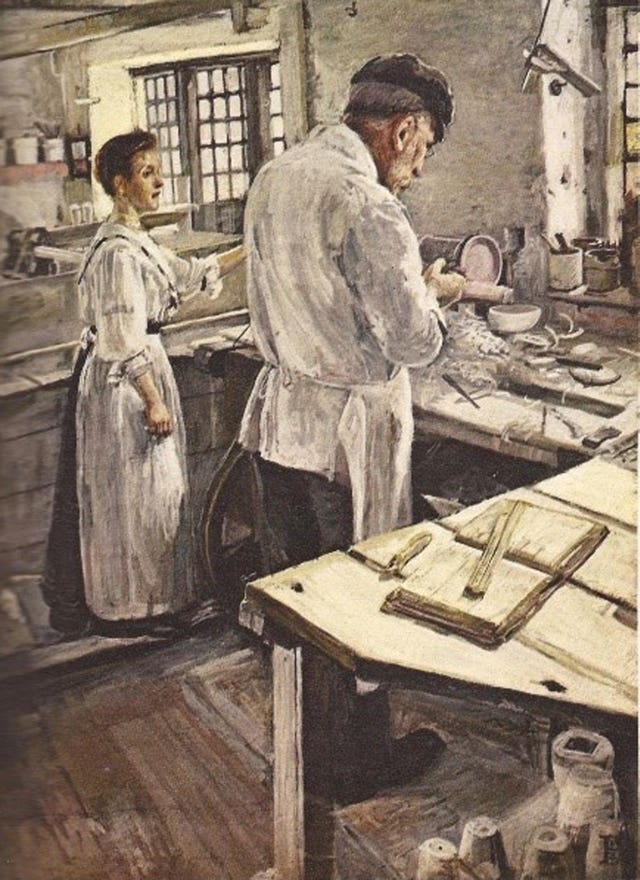Sylvia Pankhurst ‘rare portraits of working-class women’ bought by Tate
The paintings depict women working in mills and potteries.

Watercolours by the late artist and campaigner Sylvia Pankhurst – “rare portraits of working-class women” from the early 20th century – have been bought by the Tate.
The 1907 paintings, depicting women working in mills and potteries, belonged to the artist’s grandchildren.
Pankhurst, who died aged 78 in 1960, played a pivotal role in the campaign for women’s right to vote.

Two of the four paintings show workers at cotton mills in Glasgow, where Pankhurst wrote about “the almost deafening noise of the machinery and the oppressive heat”, which was “so hot and airless that I fainted within an hour”.
The others depict the Staffordshire potteries, where women earned a maximum of seven shillings a week while being exposed to hazardous flint dust and fumes and of which Pankhurst said: “Each was employed by the man she toiled for – the slave of a slave, I thought!”

The paintings, which Pankhurst hoped would help improve pay and conditions for women, are the first by the artist to enter Tate’s collection.
They have remained in the artist’s family since they were painted 111 years ago.
Pankhurst also designed badges, banners and flyers for the Women’s Social And Political Union, the group which her mother Emmeline Pankhurst helped to launch.
She later gave up art to dedicate herself to the suffrage campaign and ensure the representation of working-class women in the movement.
The paintings are being bought with funds provided by the Denise Coates Foundation, from the artist’s grandchildren, Helen Pankhurst and Alula Pankhurst.

Helen Pankhurst said: “The family are delighted that some of Sylvia’s paintings are being acquired by Tate.
“Sylvia was an artist as well as a champion of working women’s rights, her first passion not as well known as her second.
“In these beautiful pieces these interests are powerfully combined.”
Tate’s director of collection (British Art) Ann Gallagher said the acquisition was timely and allowed Tate to “expand the way we represent working women as subjects in art history”.
“At a time when gender pay gaps and women’s rights at work remain urgent topical issues, these images remind us of the role art can play in inspiring social change,” she said.
This year marked the centenary of the Representation Of The People Act, which gave some women voting rights.
The four paintings will go on display at Tate Britain in 2020.





